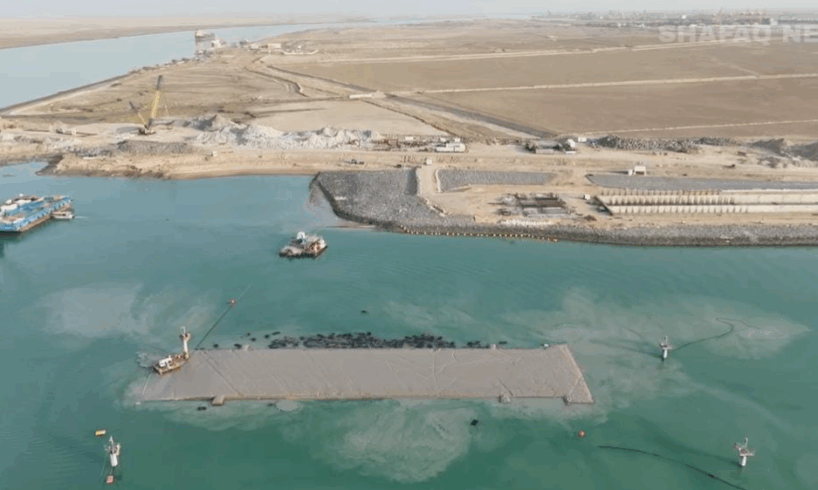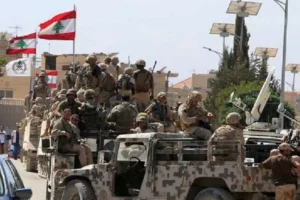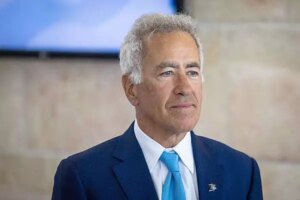
Shafaq News – Baghdad
The maritime channel of Khor Abdullah, located at the southern
edge of Iraq’s Basra province and separating Iraq’s al-Faw Peninsula from
Kuwait’s Bubiyan Island, has once again returned to the forefront of political
and legal controversy. Despite decades of international resolutions and
bilateral agreements, the waterway remains a sensitive flashpoint involving
sovereignty, economic competition, and unresolved historical grievances.
A Legacy of Invasion and Forced Demarcation
The roots of the current dispute trace back to August 2, 1990,
when Iraqi forces invaded Kuwait, triggering a regional upheaval and prompting
a US-led coalition military response under Operation Desert Storm. In the
aftermath, Iraq faced severe international sanctions and territorial
repercussions.
One of the key post-war measures was United Nations Security
Council Resolution 833, adopted in 1993, which formally demarcated the land and
sea borders between Iraq and Kuwait—cutting through the center of Khor
Abdullah. Many Iraqi legal experts and politicians have long argued that this
decision was imposed under duress, at a time when Iraq could not defend its
national interests. It was enforced under Chapter VII of the UN Charter, which
allows for coercive measures, further fueling Iraqi perceptions of injustice.
The 2012 Navigation Agreement and Its Fallout
Nearly two decades later, Iraq and Kuwait signed a bilateral
agreement in 2012 to regulate maritime navigation in Khor Abdullah. The deal,
which outlined traffic routes, joint security mechanisms, and trade
facilitation protocols, aimed to manage the shared waterway more effectively.
However, the agreement quickly stirred backlash within Iraq.
Critics described it as a de facto concession of sovereignty—especially
concerning Iraq’s maritime access and fishing rights. Although Article 6 of the
agreement explicitly states that it does not modify the borders established by
Resolution 833, many Iraqis argued that its practical implementation further
curtailed Iraq’s influence in the Gulf.
The agreement was ratified by Iraq’s Council of Ministers in 2012
and passed by Parliament the following year under Law No. 42 of 2013. It was
subsequently published in the official Iraqi Gazette.
But in September 2023, the Iraqi Parliament voted to annul the
agreement altogether, reigniting tensions with Kuwait. The Kuwaiti government
responded by submitting a formal protest to the UN Security Council, warning
that Iraq’s withdrawal “violates international agreements and undermines
bilateral stability.”
Several Iraqi political figures defended the revocation, asserting
that the agreement had been concluded under pressure during a period when
Iraq’s sovereignty was still compromised.
International law expert Fawzi Hameed told Shafaq News,
“Resolution 833 was linked to the ceasefire, but Iraq was not in a position to
advocate for its interests at the time. Agreements made under coercion can be
revisited under international law.”
Strategic and Economic Stakes
Khor Abdullah serves as Iraq’s only maritime gateway to the Gulf,
making it essential for both commercial imports and oil exports. Several major
Iraqi ports depend on this channel:
-Umm Qasr Port – Iraq’s main commercial seaport
-Khor al-Zubair – A hub for oil and petrochemical exports
-Grand al-Faw Port – A strategic infrastructure project under
construction, intended to transform Iraq into a regional logistics center
On the Kuwaiti side, heavy investment has gone into Mubarak
al-Kabeer Port on Bubiyan Island. Positioned to become one of the largest ports
in the region, it is widely viewed as a direct competitor to Iraqi and even
Iranian maritime hubs.
This overlapping infrastructure has fostered both opportunities
and rivalries. While both nations seek to enhance their trade standing, their
shared geography and competing ambitions have added another layer of complexity
to an already politically charged environment.
The channel’s shared location necessitates coordinated maritime
security between Iraq and Kuwait. Preventing smuggling, ensuring navigational
safety, and managing traffic flows require bilateral cooperation—especially
amid broader regional tensions. Any escalation involving neighboring powers,
particularly Iran, could compromise shipping routes through Khor Abdullah, with
direct economic implications for both Baghdad and Kuwait City.
A Broader Sovereignty Debate
For many in Iraq, the dispute is not just about navigation—it is a
symbol of national sovereignty.
Mohammad al-Basri, a researcher specializing in border affairs,
argued that Khor Abdullah had historically been administered by Basra province.
He warned that continuing the agreement would jeopardize Iraq’s maritime and
economic security. “This is not a conflict with Kuwait,” he said. “It is a
struggle over Iraq’s sovereign rights.”
Former Iraqi military officer Brigadier Mahmoud al-Jubouri echoed
that sentiment, stating, “The post-1991 isolation allowed for the imposition of
unbalanced agreements. Khor Abdullah is a strategic loss that should have been
reviewed long ago.”
Observers warn that the ongoing dispute risks stalling critical
joint infrastructure projects, including the Grand al-Faw Port and broader
regional connectivity plans that could transform Iraq’s economic future.
Written and edited by Shafaq News staff.





